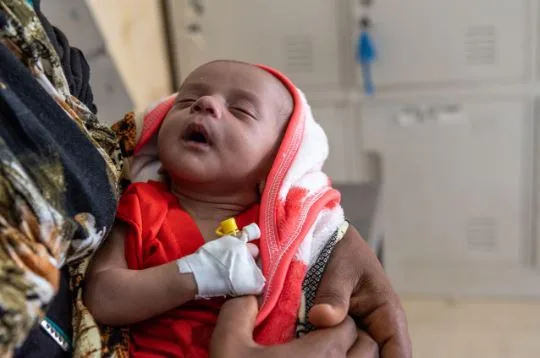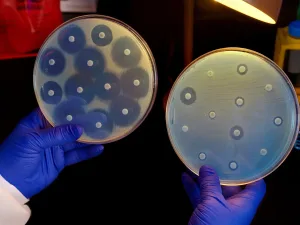In Africa, newborns are on the frontlines of a growing global health crisis: antibiotic-resistant superbugs. Neonatal sepsis, a severe infection affecting newborns, is becoming harder to treat as bacteria evolve to resist antibiotics. This issue is becoming especially dire in countries like Nigeria and Ethiopia, where access to life-saving treatments is limited, and healthcare systems struggle to cope.
The Silent Pandemic: Rising Resistance in Newborns
Yusra, a newborn in Ethiopia, was fighting for her life after developing severe sepsis, a condition where the body’s immune system attacks its own organs in response to infection. Doctors at a hospital in Dessie tried various antibiotics, but none worked. Her story highlights the growing emergency: antibiotics, once a miracle treatment, are losing their effectiveness. In 2019, nearly 5 million deaths worldwide were linked to drug-resistant infections, with 20% occurring in sub-Saharan Africa.
Neonatal sepsis accounts for one-third of newborn deaths in Ethiopia, and the situation is worsening due to the rise of superbugs. This deadly infection can be managed with early treatment, but as resistance to antibiotics grows, saving newborns like Yusra is becoming increasingly difficult.
The Scale of the Crisis
Antibiotic resistance is now a global issue, but African nations are especially hard hit. Hospitals in these regions often lack the diagnostic tools necessary to identify the specific bacteria causing infections, leaving doctors to prescribe antibiotics blindly. In cases like Yusra’s, the wrong antibiotics allow bacteria to multiply, leading to fatal outcomes.
Across Africa, hospitals struggle with outdated equipment, power shortages, and limited medical supplies. In Nigeria, one in 29 babies die within the first month of life, with sepsis being a leading cause. As doctors fight to save these fragile lives, the absence of proper testing and inadequate resources make their job even harder.
The High Cost of Treatment
The financial burden of treating drug-resistant infections is immense. In countries like Nigeria and Ethiopia, patients often bear the cost of antibiotics themselves. For families already facing economic hardship, the cost of life-saving medication is often out of reach. In some cases, hospitals share vials of antibiotics between multiple babies to cut costs, but this can increase the risk of infection spreading.
For premature babies like Yusra, the cost of last-resort antibiotics, such as meropenem, can be five times an average person’s monthly salary. Even when hospitals cover some drug costs, the burden on families remains overwhelming.
A Global Response Is Needed
The rising threat of drug-resistant infections in newborns is a clear sign that urgent action is required. A holistic approach must be adopted to prevent neonatal sepsis, including better access to testing, vaccines, clean water, sanitation, and hygiene. Without these essential elements, the most vulnerable members of society will continue to suffer and die.
Doctors, scientists, and public health experts agree that antimicrobial resistance is a threat on the scale of a pandemic. The world must unite in its efforts to develop new treatments, improve healthcare infrastructure, and ensure access to affordable life-saving antibiotics. Without immediate action, millions more lives, especially those of newborns, will be lost to untreatable infections.
#SuperbugCrisis #NeonatalSepsis #AntibioticResistance #HealthcareInAfrica #SaveNewborns #GlobalHealthCrisis #DrugResistantInfections #SepsisAwareness




+ There are no comments
Add yours